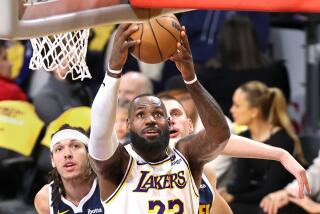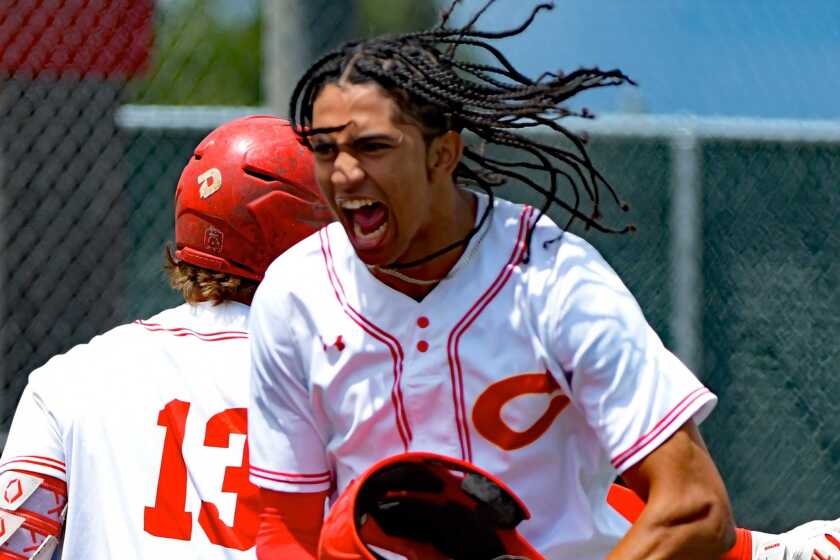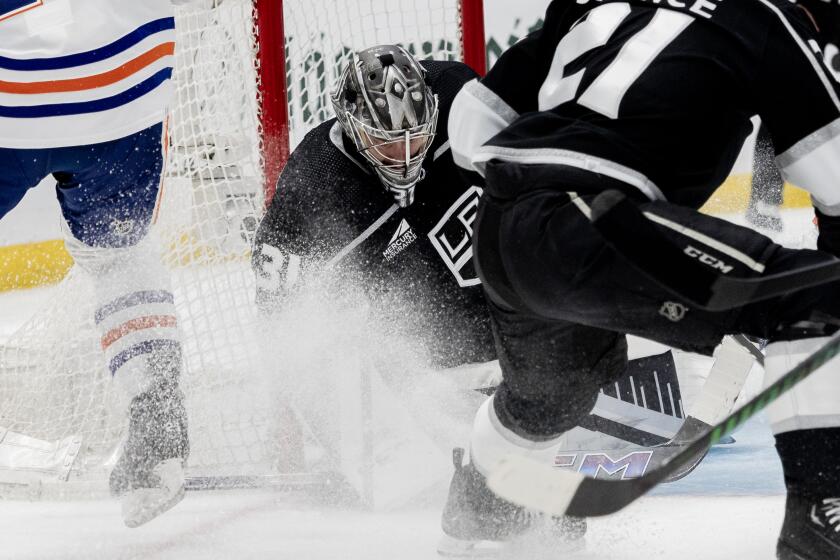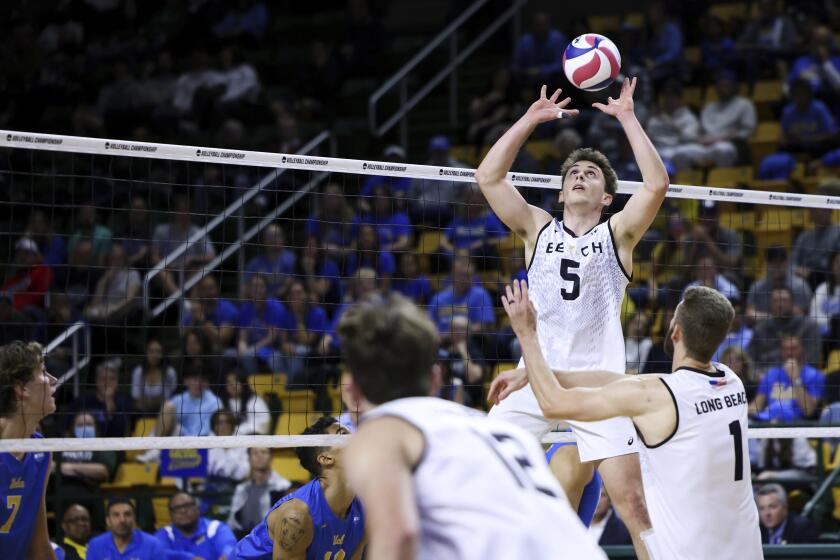Blame the referee’s brain
UC Davis scientists have confirmed what tennis great John McEnroe so colorfully alleged on the court: Wimbledon referees make bad calls when judging balls hit close to the line.
It’s not a matter of incompetence, as McEnroe frequently asserted. Rather, the human brain is hard-wired to misread the true position of fast-moving objects, including tennis balls whizzing by at more than 100 mph.
It takes about 100 milliseconds for the image of an object to travel from the retina to the visual cortex and a little longer for the brain to become aware of it. The brain compensates for that delay by anticipating the object’s location.
At the All England Lawn Tennis Club, the inevitable result is that referees sometimes perceive a ball as being farther along in its trajectory than it actually is, according to a new study published Tuesday in the journal Current Biology.
David Whitney, a vision scientist at the UC Davis Center for Mind and Brain, and his colleagues studied 4,457 points from the 2007 Wimbledon championship and zeroed in on cases in which the ball landed on or close to the out-of-bounds line. Using slow-motion replays and Hawk-Eye, the tournament’s computerized ball-tracking system, the researchers identified 83 erroneous calls.
Without any delay in the brain, the referees would be equally likely to misjudge balls that are in and balls that are out. Instead, the researchers found that 70 of the errors -- or 84% -- were made when balls were called “out” but were actually in.
A follow-up analysis of the 2008 Wimbledon tournament determined that 69% of the blown calls that year went the same way.
“This is not a problem with referees,” Whitney said. “This is a problem with human visual perception.”
Bad calls are probably evenly distributed between teams, limiting their effect. But that doesn’t mean they don’t influence the outcome of a match.
“If there’s a missed call, it could change your psychological state,” Whitney said.
The researchers concluded that tennis players should focus on challenging calls when they believe the ball was incorrectly called out, since they are more likely to be vindicated by the infallible Hawk-Eye. They also suggested that Hawk-Eye replace human judgment altogether.
Wimbledon spokesman Johnny Perkins said the tournament would consider such a radical move only if the entire sport embraced the idea, “and that would appear most unlikely.”
--
More to Read
Get our high school sports newsletter
Prep Rally is devoted to the SoCal high school sports experience, bringing you scores, stories and a behind-the-scenes look at what makes prep sports so popular.
You may occasionally receive promotional content from the Los Angeles Times.







